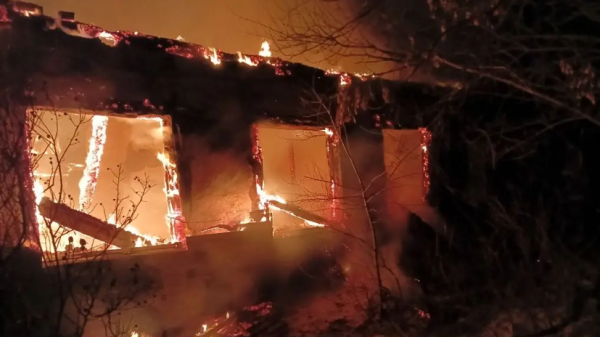The Thai prime minister, Prayuth Chan-ocha, has threatened to use “all laws, all articles” to take action against pro-democracy protesters, prompting fears that the kingdom’s harsh lese-majesty law could be used against individuals.
The law shields Thailand’s powerful royal family from criticism with one of the world’s strictest defamation criteria, under which anyone who “defames, insults or threatens the king, queen, heir-apparent or regent” can face up to 15 years on each charge.
Prayuth said earlier this year that it was not being used for the moment, at the request of the king.
10,000 pro-democracy protesters march on Thai police HQ
Read more
Over recent months, however, the authorities have struggled to control a new student-led movement that has held rallies across the country calling for democratic reforms.
Protest leaders have shocked many by demanding that the power of the monarchy should be curbed, and that the institution should be accountable and transparent. They are also calling for the resignation of Prayuth, a former army general who first came to power in the 2014 coup.
The announcement came in a statement a day after at least 10,000 protesters gathered at a major intersection in Bangkok, to condemn the police for using chemical-laced water cannon and teargas against them at a protest this week.
Demonstrators chanted “slaves of tyranny” and “our taxes” and threw paint at the Thai police headquarters. Graffiti fiercely critical the king, and in some cases mocking his personal life, was sprayed in the surrounding area.
“The situation is not improving at there is a risk of escalation to more violence. If not addressed, it could damage the country and the beloved monarchy,” Prayuth said in a statement.
“The government will intensify its actions and use all laws, all articles, to take action against protesters who broke the law.”
The announcement did not specify whether this included Article 112 of the penal code, which forbids insulting the monarchy.
At least 84 people have faced various other charges for taking part in the protests. Last month, Amnesty International accused the authorities of using “vague, overly restrictive laws to harass and silence people”.
Though the lese-majesty law has not been used against those who have taken part in the recent demonstrations, people have been charged with sedition, which carries a seven-year sentence.
Two people have also been accused of attempted violence against the queen after her motorcade was heckled. The charge carries a maximum sentence of life imprisonment, or, a possible death sentence if her life is thought to have been threatened.






















































Свежие комментарии